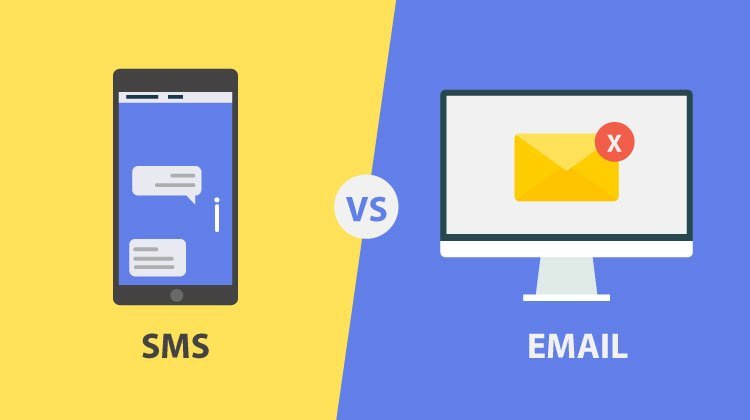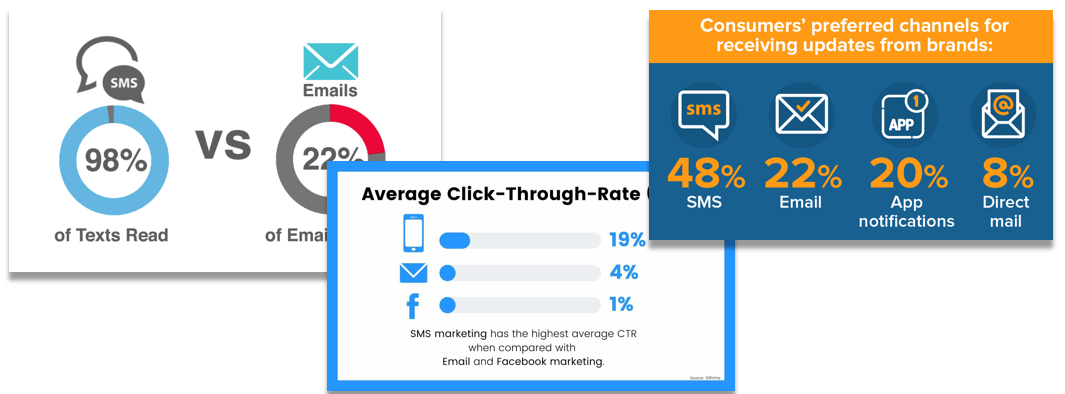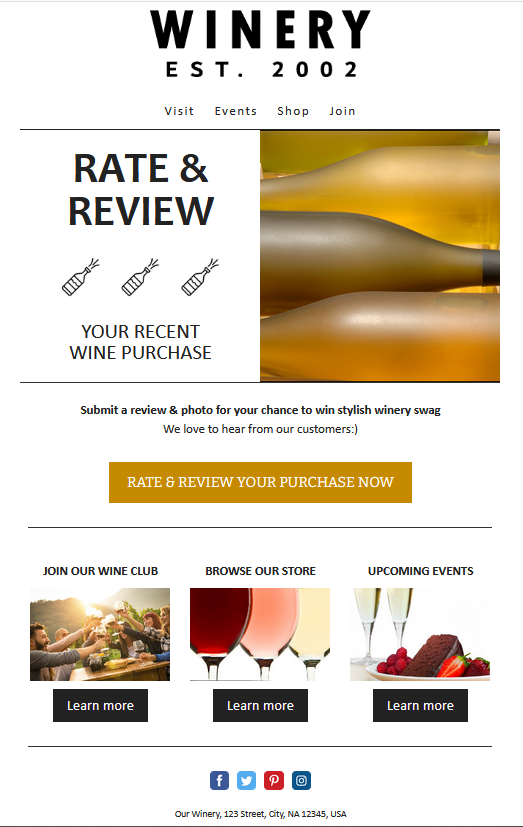For the last twenty years, wineries have emailed their customers and prospects.
Now changing times have consumers more interested in text messaging than email.
Both tactics can work for DTC wine sales.
But savvy wine marketers know some messages are best delivered by email and others by SMS.
SMS and email both connect customers to brands. But some messages work better as a text while others work better in email.
Evaluating the Strengths of SMS vs. Email
When comparing email marketing to SMS messaging, here are some important points to consider:
Today’s consumers prefer receiving texts from brands 2-to-1 over email
SMS messages are 4-times more likely to be opened compared to email
Consumers receiving SMS messages are 5-times more likely to click a link
Compared to email, consumers receiving text messages must explicitly opt-in
Compared to email, most text messages are limited to 160 characters
Compared to text, email messages offer more graphic design options
Compared to text, email messages often cost less per name to send, but also generate fewer sales conversions
Weigh these factors when deciding which marketing tactic will best meet your needs.
When Should You Use Email Marketing?
For sending longer messages, or if the information you’re sharing isn’t time-sensitive, you should go with email. Same thing with branding campaigns that require liberal use of graphics. So, some good applications for email marketing in the wine industry are:
Sending a winery newsletter
Sharing lifestyle content from the winery
Introducing a new customer experience
Sending press releases to media contacts
Running a promotion with detailed terms & conditions
For many wineries sending messages like these, email should still be doing its share of the heavy lifting.
When Should You Use SMS Messaging?
Several common situations call for text messaging as the preferred tactic. For time-sensitive messages requiring customer action, you should text if you can. A few examples of when you should use SMS messaging include:
Offering time-limited allocations or discounts
Reminding guests about upcoming appointments
Sending updates about an order or shipment
Asking for customer feedback about a recent experience
Responding to customer questions texted to your winery
Using SMS messaging in these situations allow your business to profit from the higher open rates and better customer engagement driven by text marketing.
Best of Both: Text & Email working together
Ultimately, both email marketing and SMS messaging can be very effective wine marketing tools. To get the most out of both options, it helps to use the right tools for the job.
That’s where VinterActive can help.
Our award-winning PreferencePro Automated Wine Marketing system can help DTC wineries delight their customers and grow their sales with personalized text and email marketing from VinterActive.
To schedule a live demonstration and learn how PreferencePro can help you, please visit us at www.vinteractive.com.





